外研版初中英语初三上册Revision module B知识讲解
【2020】最新九年级英语上册RevisionmoduleB综合能力演练(含解析)(新版)外研版
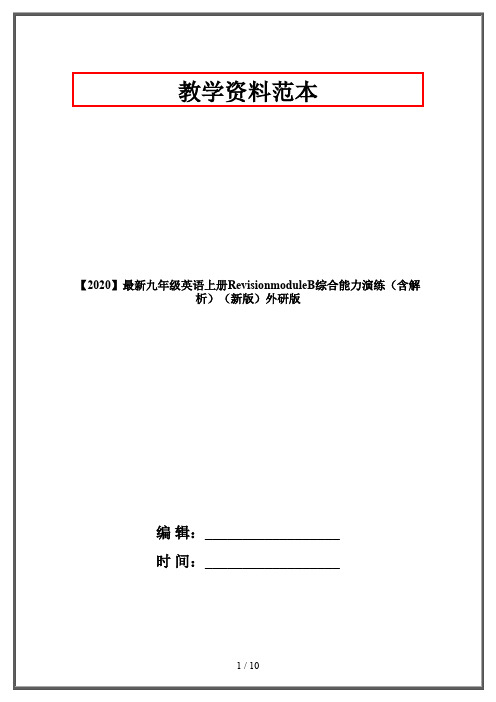
4.I’m afraid he won’t let me go with him.Could you try to _______ him?
A.tell B.advise C.persuade D.ask
5.There are _______ people and _______ noise in the meeting room.
But the outside world wasn’t as____5___as she thought. Ten years later, she came back home with a tired body and mind.
When she got home, it was dark. She____6___the door, but nobody answered. Surprisingly, she found that the door was____7___. She came in and saw her mother____8___in bed, sleeping. Tears ran down her face. Hearing the cry of her daughter, the mother awoke. They hugged and cried. Later, the daughter asked, “Mom, why didn’t you lock the door?” The mother told her “I haven’t locked the door since you ___9___. I was afraid you wouldn’t be able to__10___when you came back.”
外研版九上英语Revision module B
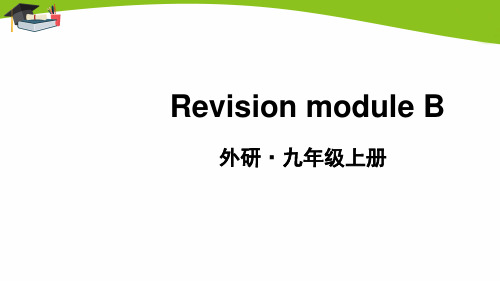
Answers
1 The driver will be taken to hospital. 2 The driver will be treated by doctors. 3 The car will be repaired.
2 Complete the sentences with the correct form of the words and expression in brackets.
The games (3) _t_h_a_t_/w__h_ic_h__ the boys enjoy most are football and basketball. Joe is best at football, and he is in the school team. The activity (4) _th__a_t/_w_h_i_c_h__ attracts the girls most is the dance, and the girls usually put on a show (5) _th_a_t_/_w_h_i_ch__ every student comes to with their parents at the end of term. The teacher (6) _t_h_a_t_/w_h__o_ the students like most is Mrs Black.
5 Make new words. Join the parts of words in Box A with the words in Box B. You need to use some of them more than once.
A -ful inter- -less out- up- un- -ity
外研版九年级上册英语 Revision module B 课后习题重点练习课件
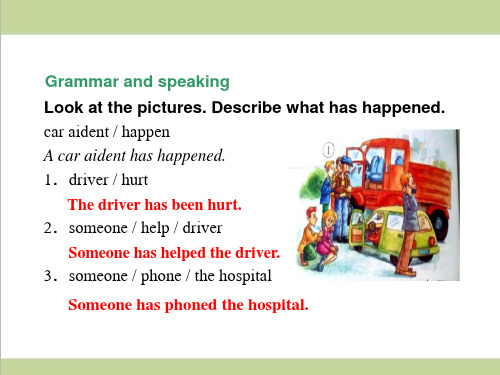
The driver will be treated by doctors. 3.car / repair
The car will be repaired.
plete the sentences with the correct form of the words or expression in brackets. 1.Some of the world's greatest books w__e_re__w_r_i_tt_e_n_ (write)
Michael: Yes, you're right. For example, look at all the lights that (4)_a_r_e__le_f_t_ (leave) on all the time!
Susan: And a lot of water (5)_is__w_a_s_te_d_ (waste) every day, just in our houses.
like best at school arg hall. The
games (3)_________t_h_a_t/ twhehibcohys enjoy most are football and
basketball. Joe is best at football, and he is in the school team. The
Now plete the sentences with the new words you have made. My brother is playing in the park. He is outside.
revision_module_B教学设计
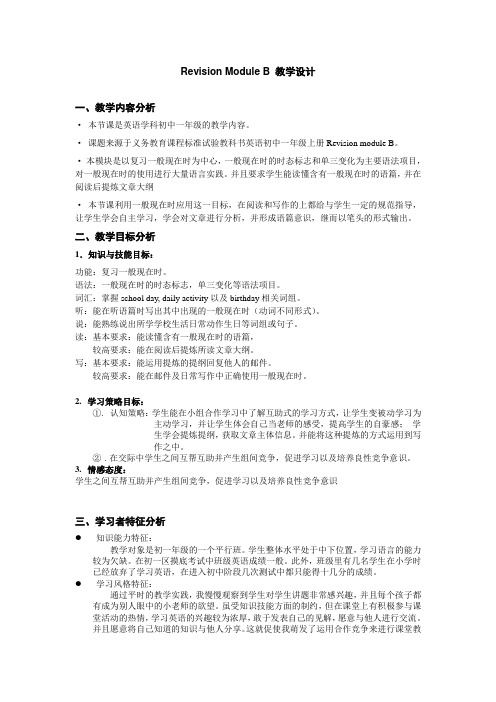
Revision Module B 教学设计一、教学内容分析·本节课是英语学科初中一年级的教学内容。
·课题来源于义务教育课程标准试验教科书英语初中一年级上册Revision module B。
·本模块是以复习一般现在时为中心,一般现在时的时态标志和单三变化为主要语法项目,对一般现在时的使用进行大量语言实践。
并且要求学生能读懂含有一般现在时的语篇,并在阅读后提炼文章大纲·本节课利用一般现在时应用这一目标,在阅读和写作的上都给与学生一定的规范指导,让学生学会自主学习,学会对文章进行分析,并形成语篇意识,继而以笔头的形式输出。
二、教学目标分析1.知识与技能目标:功能:复习一般现在时。
语法:一般现在时的时态标志,单三变化等语法项目。
词汇:掌握school day, daily activity以及birthday相关词组。
听:能在听语篇时写出其中出现的一般现在时(动词不同形式)。
说:能熟练说出所学学校生活日常动作生日等词组或句子。
读:基本要求:能读懂含有一般现在时的语篇,较高要求:能在阅读后提炼所读文章大纲。
写:基本要求:能运用提炼的提纲回复他人的邮件。
较高要求:能在邮件及日常写作中正确使用一般现在时。
2.学习策略目标:①. 认知策略:学生能在小组合作学习中了解互助式的学习方式,让学生变被动学习为主动学习,并让学生体会自己当老师的感受,提高学生的自豪感;学生学会提炼提纲,获取文章主体信息。
并能将这种提炼的方式运用到写作之中。
②.在交际中学生之间互帮互助并产生组间竞争,促进学习以及培养良性竞争意识。
3.情感态度:学生之间互帮互助并产生组间竞争,促进学习以及培养良性竞争意识三、学习者特征分析●知识能力特征:教学对象是初一年级的一个平行班。
学生整体水平处于中下位置,学习语言的能力较为欠缺。
在初一区摸底考试中班级英语成绩一般。
此外,班级里有几名学生在小学时已经放弃了学习英语,在进入初中阶段几次测试中都只能得十几分的成绩。
外研版九年级上册RevisionmoduleB
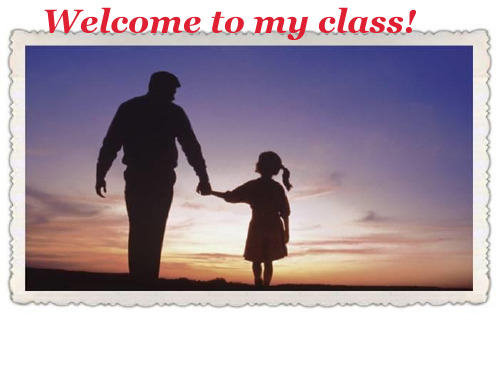
hands could paint a second-hand bike to look new. I got one on my tenth birthday. His hands could cook a delicious and colorful meal in minutes. I was always interested in watching his hands work. Even as I grew hungrier, I felt happy watching his hands.
④ Daddy’s hands were____
hands could paint a second-hand bike to look new. I got one
⑤ Daddy’s hands were____
on my tenth birthday. His hands could cook a delicious and colorful meal in minutes. I was always interested in watching
They could fly a kite high in the sky as well as to get it down
Tip3:Pay attention to the key from the top of a tree. They could wash my white dress clean,
② Daddy had long smart fingers that could make lots of
- 1、下载文档前请自行甄别文档内容的完整性,平台不提供额外的编辑、内容补充、找答案等附加服务。
- 2、"仅部分预览"的文档,不可在线预览部分如存在完整性等问题,可反馈申请退款(可完整预览的文档不适用该条件!)。
- 3、如文档侵犯您的权益,请联系客服反馈,我们会尽快为您处理(人工客服工作时间:9:00-18:30)。
精品文档 用心整理 资料来源于网络 仅供免费交流使用 Revision module B 词句精讲精练 责编: 词汇精讲 1. hurt; injure; harm和wound 这四个词都有“伤”的意思。 (1) hurt是普通用语,既可指肉体上的伤害,也可指精神上、感情上的伤害。例如: The driver hurt himself badly in the accident. 那位司机在这次事故中伤得很重。 I felt hurt at your words. 你的话使我很难过。 (2) injure比hurt正式,hurt多指伤痛,而injure则指损害健康、容貌等,强调功能的损失。例如: Drinking can injure one’s health. 喝酒对人的健康有害。 (3) harm用于肉体或精神上的伤害均可,有时可指引起不安或不便,还可用于抽象事物,尤其是不道德的事情。例如: Don’t harm your eyes by reading in dim light. 不要在昏暗的灯光下看书,以免损害眼睛。 (4) wound指枪伤、刀伤、刺伤等皮肉之伤,是出血的、严重的伤,特指战场上受的伤。它可以指肉体上的伤害,也可喻指精神上的创伤。例如: The robber wounded him with a knife. 那个强盗用刀刺伤了他。 2. thanks to; because of 与with the help of thanks to 意为“多亏,由于”,同义词组为because of(因为)或with the help of(在……的帮助下)。后跟名词或代词,在句中作状语,表示原因,常用于句首或句末。thanks to常有“感谢”的意味,表示由于某种原因才有了某种好的结果,有时也用于反语中。because of 无感情色彩,一般仅表示原因。with the help of侧重于“在某人的帮助下”。例如: Thanks to the doctor, the boy was saved. 多亏了那位医生,那个男孩得救了。 Thanks to your help, I passed the exam. 多亏了你的帮助,我通过了那次考试。 He didn’t go to school yesterday because of illness. 昨天因为生病,他没有去上学。 We were successful with the help of our teachers. 在老师们的帮助下,我们成功了。 3. dress up dress up意为“穿上盛装,乔装打扮”。既可用作及物动词,又可用作不及物动词。例如: Everyone dresses up and looks beautiful. 每个人都打扮得很漂亮。 We dressed up for the wedding. 我们为参加婚礼而盛装打扮。 【拓展】 (1) put on意为“穿(戴)上”,强调其动作,即由没穿到穿这一过程的完成。例如: He put on his coat and went out. 他穿上大衣就出去了。 (2) wear意为“穿(戴)着”,强调其状态。例如: Lucy’s mother often wears a pair of glasses. Lucy的母亲常常戴着一副眼镜。 (3) in + 表示衣服或颜色的词,意为“穿着……衣服”,表示穿衣状态,相当于be wearing。例如: The girl in red is his sister. 那个穿红衣服的女孩是他的姐姐。 (4) dress既可以表动作,也可以表状态,常用人作宾语,意为“给……穿衣服”;在表示“自己穿衣”,时可说get dressed=dress oneself;当dress表示状态时,一般要用be dressed in 的形式。 She is only a girl of three; she can’t dress herself. 她只是一个3岁的女孩,她还不会自己穿衣服。 She was dressed in a red coat. 她穿着一件红色的上衣。 4. sound; noise和voice (1) sound可以指人或动物发出的声音,或物体碰撞的声音。这个词的使用范围很大。可以说,大自然的任何“声音”都可以用sound。例如: 精品文档 用心整理 资料来源于网络 仅供免费交流使用 Light travels much faster than sound.光的传播速度比声音快得多。 (2) noise意为“噪音,喧闹声”,常指不悦耳、不和谐的嘈杂声。例如: Don’t make any noise! 别吵闹! The noise wakes me up. 噪音吵醒了我! (3) voice一般指人的声音,说话、唱歌、谈笑都可用voice。sound和noise不仅能指人的声音,还可以表示别的动物发出的声音,而voice除了有时可指鸟的声音外,很少表示其它动物的声音。例如: The girl has a beautiful voice. 那女孩嗓音很美。 They are talking in low voices. 他们正小声交谈。 When the teacher came into the classroom,our monitor spoke in a loud voice,“Stand up!” 老师走进教室时,班长大声喊:“起立!” 5. late; later; latest与lately (1) late作形容词或副词,意为“迟,晚,来不及”。例如: He was late for school. 他上学迟到了。 He often works late into the night. 他常常工作到深夜。 (2) later作副词,意为“后来,以后”。例如: I hope we catch up later. 我希望我们后来赶上。 (3) latest 作形容词,意为“最新的,最近的”。例如: They are the latest fashion. 它们是最新的款式。 (4) lately作副词,意为“最近”。例如: Have you seen her lately? 你最近见过她吗? 6. rise与raise rise常用作不及物动词,指的是物体自己提升,如:太阳升起,河水上涨,物价上涨等都可以用rise;而 raise是及物动词,通常指的是通过外力的作用把事物举起或抬起。例如: The sun rises in the east. 太阳从东方升起。 Prices rise every day in those countries. 那些国家的物价天天上涨。 The teacher asks the boy to raise his hand. 老师要求那个男孩举起手。 【拓展】 (1) 原形 过去式 过去分词 词性 raise raised raised 及物动词
rise rose risen 不及物动词
(2) raise的常见短语: raise one’s voice提高嗓门 raise a family养家糊口 raise money筹款 raise price提高价格 7. because; since; for和as (1) because“因为”,从属连词,语气最强,常用来回答why引导的特殊疑问句,可位于句首,常用逗号,也位于主句之后,不需要用逗号。例如: We stayed at home because it rained. = Because it rained, we stayed at home. 因为下雨,我们待在家里。 (2) for“因为”,并列连词,语气较弱,一般放在主要分句之后,用逗号隔开。例如: It must have rained during the night, for the road is wet. 夜里肯定下雨了,因为路是湿的。 (3) since“既然”,常放在句首,用于表示一种已知的、显然的理由。例如: Since it is Sunday today, you may go to the park. 既然今天是星期天,你们可以去公园。 精品文档 用心整理 资料来源于网络 仅供免费交流使用 Since everybody is here, let’s begin out party. 既然大家都到了,那就开始我们的聚会吧! (4) as“因为,既然”,从属连词,语气较弱,一般用于句首,用逗号与主句隔开,常用于指说话双方都明白的原因。例如: As it was late, we had to go home. 因为晚了,我们必须回家。 8. miss miss是及物动词,课文中意为“想念,怀念”,miss doing sth. 意为“怀念做某事”。例如: Will you miss your parents when you leave home? 离开家时,你会想念你的父母吗? I miss living in the country. 我怀念住在农村的日子。 【拓展】miss用作及物动词时,还有如下意义: (1) miss + 名词或动词-ing形式,意为“未赶上,未击中,未找到”等。例如: I missed the first bus, so I came late. 我没赶上首班公共汽车,因此我来迟了。 (2) miss意为“遗漏,省去”。例如: You have missed a letter in the word. 你在这个单词中漏掉了一个字母。 词汇精练 I. 英汉词组互译。 1. above all____________________ 2. die from ____________________ 3. 发生____________________ 4. worry about ____________________ 5. 因为____________________ 6. 扮演……的角色____________________ 7. 取得进步____________________ 8. either…or…____________________ 9. belong to____________________ 10. owe to____________________ II. 根据句意及首字母或汉语提示完成句中所缺单词。 1. I t______ over the box on the floor and fell. 2. You’ve cut your knee. There’s ____________(血) on your leg. 3. Can you go and f____________ the spoon for me? 4. Do you know the s____________ “ When in Rome, do as Romans do.”? 5. The teacher called two students to finish the ____________(对话) between Mary and her mother. 6. They didn’t have a w____________ time yesterday because it rained heavily. 7. W____________ you go, I will go with you. 8. Everyone knows the i____________ of learning English. 9. I beg your p____________. 10. Most of the nurses have great ____________(耐心). III. 用括号中所给单词的适当形式填空。 1. I will return the book to the library if I _______________(finish) reading it. 2. As soon as he saw me, he _______________(stop) to speak to me. 3. This book _______________(translate) into English already. 4. She was made _______________(wash) clothes by her mother. 5. The old man told the children _______________(not walk) in the rice fields. 6. He had decided _______________(write) it again. 7. I hope he _______________(come) back in a week. 8. It _______________(rain) heavily when I got to the factory this morning. 9. Computer is one of the most important _______________(invent). 10. She said she was _______________(terrible) ill. IV. 听力链接。 (2015 门头沟一模)
